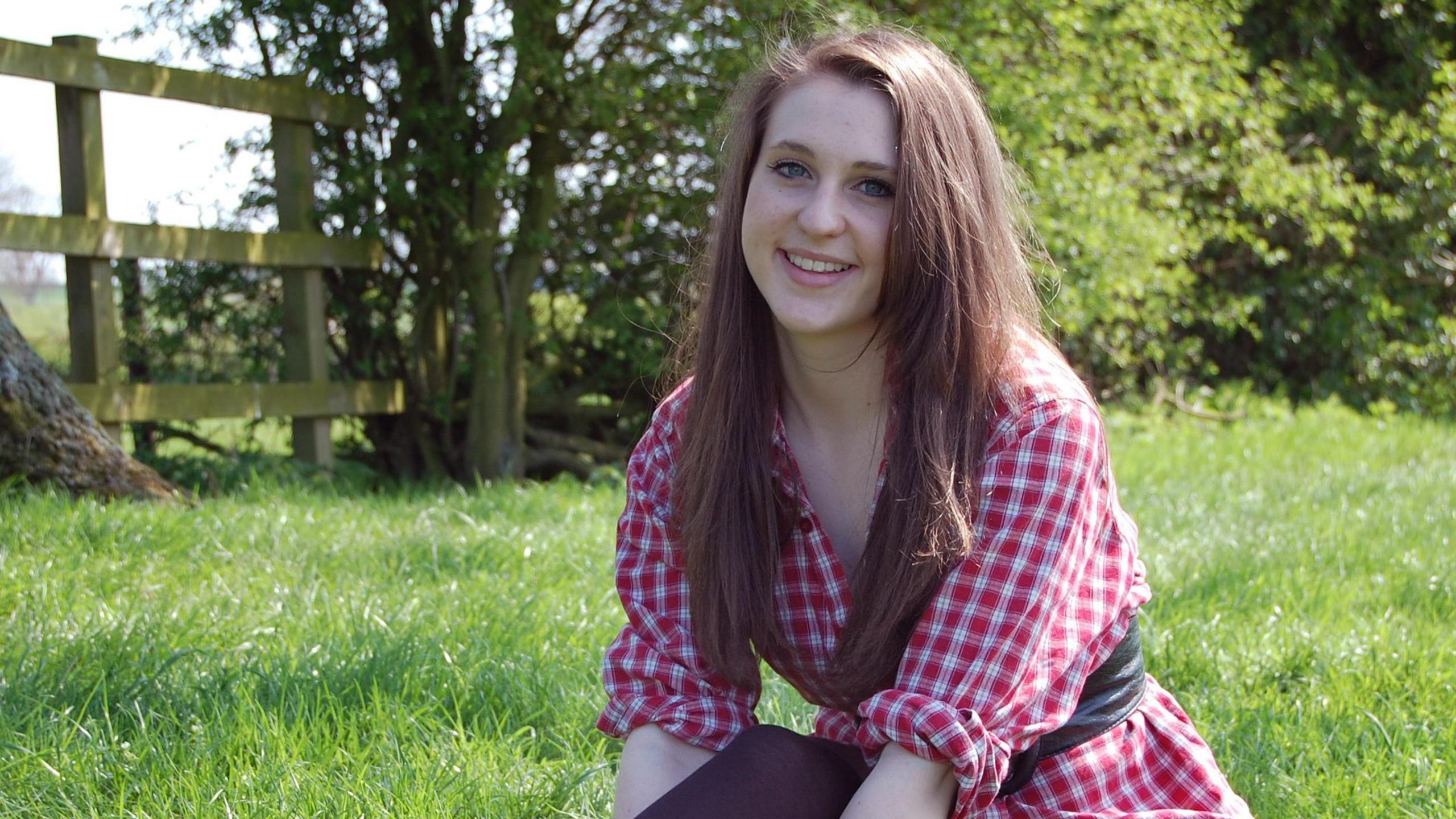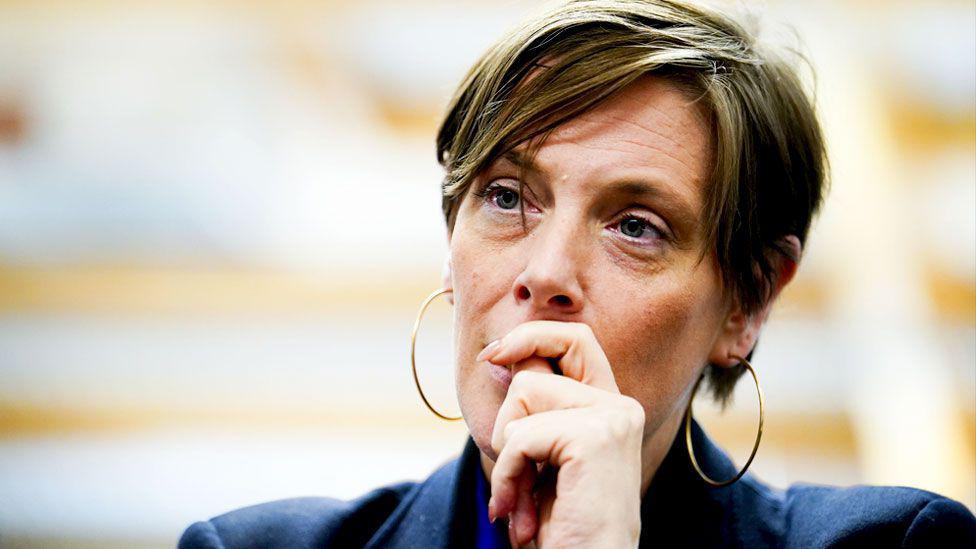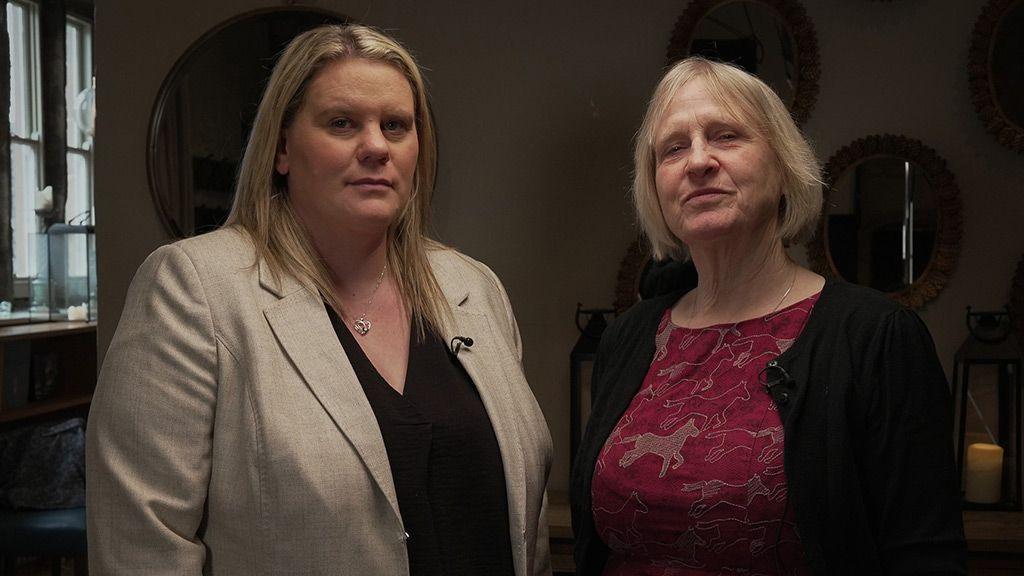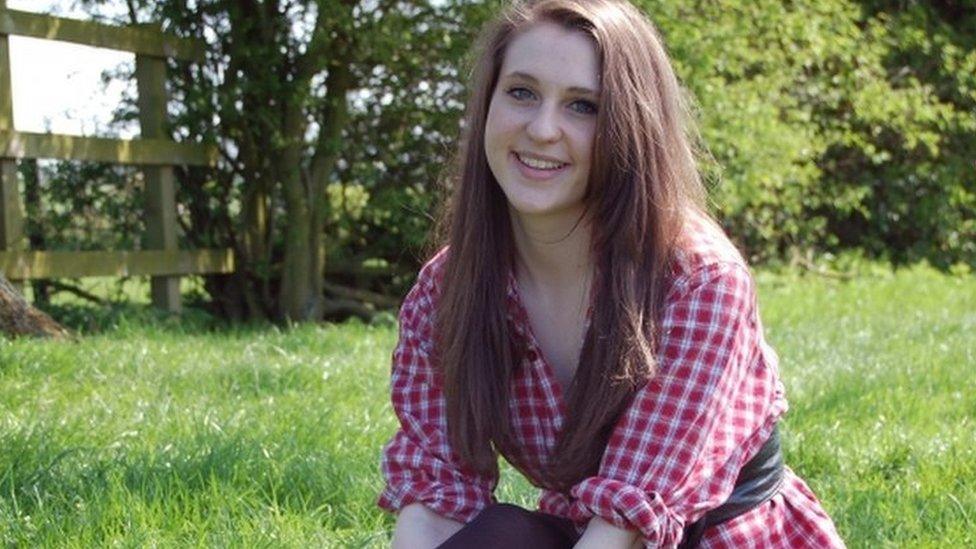Stalking victim's dad warns people still at risk

Alice Ruggles was stalked and killed by an ex-boyfriend
- Published
The father of a woman murdered by an obsessed former boyfriend says victims of domestic abuse could still be at risk amid criticism of a national police screening tool.
Alice Ruggles was killed in her Gateshead flat in 2016 by Trimaan Dhillon, who had been stalking her.
It later emerged she had contacted Northumbria Police - which has since increased its use of domestic abuse specialists - to report her concerns, but was not classed as high risk after being assessed using a questionnaire system known as Dash.
A BBC investigation highlighted concerns the method of categorising risk, used by forces across the country, does not correctly identify victims in the most danger of further harm.
Miss Ruggles, who was originally from Tur Langton near Market Harborough in Leicestershire, was bombarded with texts, calls and unwelcome visits to her home.
Dhillon also gave her unwanted gifts and threatened to kill himself.
Miss Ruggles father, Clive, said: "Alice was assessed as medium risk and was killed ten days later.
"It's not a simple tick box exercise."
System 'doesn't work'
The Dash (Domestic, Abuse, Stalking, Harassment and Honour-Based Violence) assessment is a list of 27 questions put to victims.
The resulting score typically determines what happens next.
If a victim is classified as high risk, they are referred on for specialist, intensive support.
The safeguarding minister Jess Phillips told File on 4 the system "doesn't work" and there were "obvious problems" with the Dash questionnaire.
She said: "Until I can replace it with something that does [work] we have to make the very best of the system we have."
Domestic Abuse: Beyond the Checklist
File on 4 Investigates the risk assessment system for domestic abuse and asks if it is still fit for purpose
Mr Ruggles said procedures had come a long way but the system still needed "huge further improvement".
"You have to try and train the responders to read between the lines, to ask questions," he said.
Last month, Home Secretary Yvette Cooper highlighted a pilot scheme at Northumbria Police to place independent domestic abuse specialists in the force's call centres.
She hailed it as an example of efforts to improve the response to victims.
At the time, Northumbria Police said: "The domestic abuse specialists are fully embedded into our wider teams and are constantly providing that crucial advice and early support to officers and staff who are dealing with real-time incidents.
"The results we've seen across the past six months demonstrate how having these specialists on board has only strengthened our response."
Follow BBC North East on X, external, Facebook, external, Nextdoor and Instagram, external.
Get in touch
Do you have a story suggestion for BBC Tyne?
Related stories
- Published26 August

- Published26 February

- Published25 February 2024

- Published19 March 2019

- Published12 September 2018
